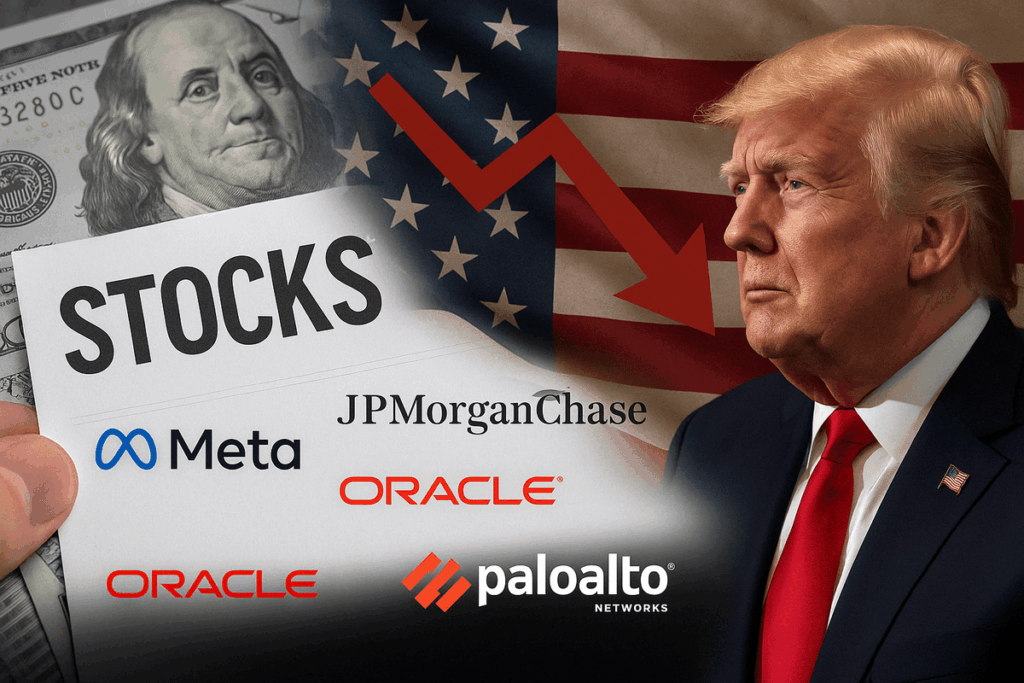In the lead-up to the U.S. President Donald Trump’s April 2, 2025 announcement of reciprocal tariffs, top executives like Mark Zuckerberg, Jamie Dimon, and others sold shares in their respective companies, sparking debates over potential insider trading. The move raised concerns, especially as the tariffs were expected to initiate a trade war affecting global markets.
In the weeks leading up to U.S. President Donald Trump’s announcement of reciprocal tariffs on April 2, 2025, a number of prominent corporate executives, including Meta Platforms Inc.’s Mark Zuckerberg and JPMorgan Chase & Co.’s Jamie Dimon, made significant stock sales, raising eyebrows in the financial community. According to data from Washington Services and reports from Bloomberg, these moves have sparked concerns of potential insider trading, as the announcements were poised to affect the global markets, triggering a trade war.
Among those who cashed in on their shares were Zuckerberg and Dimon, two of the most recognizable names in the business world. Zuckerberg, the CEO and Chairman of Meta Platforms, sold approximately 1.1 million shares, totaling $733 million in the first three months of 2025. The sale occurred under a pre-established 10b5-1 plan, a legal arrangement that allows executives to trade company shares at set times.
Similarly, Dimon, the CEO of JPMorgan Chase & Co., sold over 866,000 shares for $233.8 million on February 20, 2025, followed by additional sales in mid-April. These sales came before the announcement of the tariffs, which were expected to lead to significant shifts in the global market landscape. Other executives who followed suit include Safra Catz, CEO of Oracle, and Nikesh Arora, CEO of Palo Alto Networks.
While these stock sales were legally executed under set trading plans, the timing has raised concerns among market analysts. Critics argue that these sales were strategically planned to avoid the financial impact that would follow the trade war announcement. The sales occurred when market volatility was already on the rise, and the moves appeared to benefit from the uncertainty.
This pattern of stock sales has drawn attention to how some of the largest corporate figures, with their vast financial resources and insider knowledge, may be positioning themselves to avoid market downturns triggered by the tariffs. The tariff announcement was expected to affect the U.S. economy and global trade relations, leaving many industries bracing for a rough economic landscape.
Key Executives and Their Sales:
- Mark Zuckerberg – CEO, Meta Platforms Inc.
Zuckerberg sold 1.1 million shares worth $733 million during the first quarter of 2025, with the shares sold under a 10b5-1 plan that was put in place in 2024. - Jamie Dimon – CEO, JPMorgan Chase & Co.
Dimon sold over 866,000 shares valued at $233.8 million, followed by additional sales in April 2025, bringing his total stake sale to over a quarter of a billion dollars. - Safra Catz – CEO, Oracle Corporation
Catz sold 3.8 million stock options worth $705 million in January 2025. - Nikesh Arora – CEO, Palo Alto Networks Inc.
Arora sold 2.36 million shares, worth over $432 million, with monthly stock options sales continuing into April. - Max de Groen – Director, Nutanix Inc.
De Groen sold 5.5 million shares, amounting to nearly $410 million. - Chuck Davis – Director, Axis Capital Holdings Ltd.
Davis sold 4.3 million shares worth $400 million. - Stephen Cohen – President, Palantir Technologies Inc.
Cohen sold 4.06 million shares, totaling $337 million, amid a period of rising stock prices for the company. - Eric Lefkofsky – CEO, Tempus AI Inc.
Lefkofsky sold more than 4 million shares, worth $231.5 million. - Ted Sarandos – Co-CEO, Netflix Inc.
Sarandos sold 199,000 shares worth $194.9 million. - Travis Boersma – Co-Founder, Dutch Bros Inc.
Boersma sold 2.5 million shares for $189.6 million over five days in February 2025
Market Reactions and Legal Concerns:
The timing of these sales has led to speculation that these executives might have had access to critical information that could influence the market. While the sales were executed legally under 10b5-1 plans, which allow for the sale of stocks in a way that avoids accusations of insider trading, questions about the ethical implications of these moves are unavoidable.
The financial fallout from Trump’s tariff announcement could have a significant impact on stock prices, potentially leading to volatility across sectors affected by the trade war. For many of these executives, their ability to make such substantial sales before the tariffs were enacted highlights a key advantage in market timing that is unavailable to most investors.
As the global economy braces for the impact of the tariffs, questions about transparency, market manipulation, and the role of corporate executives in shaping market conditions are likely to intensify.
The stock sales by these high-profile executives raise important questions about the power of corporate insiders to influence the financial markets and avoid the negative consequences of significant policy changes. While the sales were executed within the legal framework, the timing and the sheer volume of shares sold will continue to be scrutinized as the effects of the trade war unfold.
